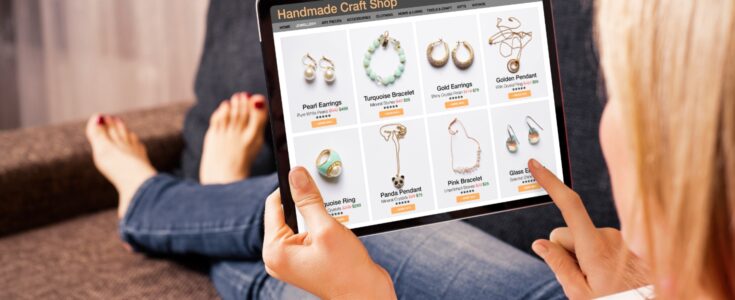
User Experience (UX) vs. Customer Experience (CX): What’s the Difference?

Servicing customers and meeting their expectations is now even more crucial. It is the customers’ perception that ultimately makes or breaks your brand. In this scenario, the business ecosystem faces the question, are User Experience (UX) and Customer Experience (CX) the same? Well, it is both yes and no.
What is user experience?
User experience or UX refers to how people interact with products or services. The experience gets evaluated as per the criteria of value, function, usability and impression. The last one can include physical appearance and texture, for instance. Now, these aspects together make up the user experience audit. In short, UX caters to both the think and feel.
User experience service
When evaluating the service quality and renderings, a crucial parameter is the context of use. The design should consider the role of a product or service in a user’s life. Hence, a user experience services encapsulates all the touchpoints between the customer and the brand. Leverage good practices to ensure your customers get enhanced user experience and navigation when on your website.
What is customer experience?
Customer experience or CX caters to the interactions between customers and the company. The meaning of CX can vary according to the type of business. For enterprise eCommerce solutions providers, a UI-managed on clients facilitates intuitive interactions without lags and annoying blank screens between reloads. What also matters is the aspects of seamless and superior mobile experiences and enhanced website navigation. This is where a customer experience audit matters.
According to Gartner, customer experience is the perceptions and related feelings caused by the cumulative effects of all interactions. With that said, CX helps to:
- Increase the chances of customer retention
- Elevate the customer lifetime value metric
- Offer better word-of-mouth marketing through positive reviews and recommendations
Also read our blog on:- Customer Experience (CX) Changing the Face of Online Retailers
What is the connection between UX and CX?
UX is about the experience of interaction with an application. To explain this, take the example of booking flight tickets.
Booking a flight ticket may be a pleasant experience but, what if the flight gets canceled and you need to apply for a refund? To do that, you have to contact a customer service agent. Taking from here, UX is a part of CX.
UX and CX are connected in the following ways:
Interactivity
There are multiple avenues that customers can use to contact the company, such as phone, email, and social media. Social media, especially, has become a valuable customer service tool. And you can see the accounts filled with concerns and complaints. Now, this is a negative CX.
Website and application Personalisation
The gamut of personalization tracks your browsing and purchase history and presents a ‘recommended for you’ section.
Allow CX and UX to communicate
Predominantly, the onus of customer communications lies with CX. The way around this is to create platforms for UX and CX to communicate. Doing so makes it easier for companies to find the customer pain points.
Key Differences between UX and CX
Interaction
The interaction level involves designing experiences users have with brands. Let us take the example of going to a movie. In the interaction phase, there are two aspects:
App Booking
In application booking, you scout through the varied services and navigate through the page to get to the desired activity. Say you want to book a ticket for Spiderman. You will log into the application and see all the movies and their timings. Alternatively, you can search for the desired movie in the search bar and get redirected to the relevant page. This is UX or user experience as it caters to using and navigating the app.
Seat Search and internal food offers
Another aspect of interaction happens at the seat search and food offers. You are opting to watch the movie in the cinema hall with a specific experience in mind. These aspects concern the viewing experience. The chosen seat and food options impact your overall sentiments while seated in the theatre. Now, this caters to CX or customer experience.
Journey
Next up is the journey. It marks the process of completing a goal. Again, taking the movie example, the journey phase comprises the below aspects:
Seat Sections Live
When on the application, you can navigate through the seat sections. Here, you can see ‘live’ the occupied and vacant seats. Since it happens on the application, it falls under the gamut of UX.
Cards Offered
This is the checkout and payment process section. Here, the site load time takes precedence. Also, most applications do not avail of all card companies and providers. Since you are making the payment from the application, this further determines the UX.
Distance from the movie screen
In terms of CX, the movie experience then looks at the distance from the movie hall. That is how far your seat is placed from the screen. Now, this affects your viewing comfort and seating posture. Therefore, impacting the overall experience.
Parking guidance and Traffic management
Another aspect is when reaching the cinema hall itself. Here, the customer experience looks at how convenient it is for a customer to reach the point of service.
Relationship
Customer relationships work on a holistic level that focuses on a lifetime experience. Using the movie example, the relationship phase looks at:
Coupon Codes
The booking application offers coupon codes. These codes are fed into the app for getting, say, reduced prices or complimentary meals. Much depends on the placement of the coupon code section on the app and the information requested. Here, even the aftermath of load time and deal approval matter. This inevitably falls under the ambit of UX.
Review of the movie
The movie itself is curated with the intent of providing an experience. A high-octane, action film shall have a different experience than a horror film. So, subject to your interests and preferences, you are inclined towards the aspects of visuals, storytelling, character arches and plot points, for instance. The complete range of movies a theatre chooses to screen thus becomes a part of the customer experience.
The Importance of Good UX and CX
Now that you know the differences and the varying levels, next up is the meeting point. Both UX and CX have a common goal – customer satisfaction. To provide the absolute best possible experience to users, both are integral. Think of UX as the droplets that create the ocean of overall CX. According to Forrester, customers are likely to pay more when they have a positive relationship with a brand. What’s more, if the product is enticing, customers are willing to pay up to 4.5x for a positive customer experience.
Also read our blog on :- Top Customer Experience Trends in eCommerce
Parting Words
The crux of the matter is that UX and CX are intertwined. User experience lays the building blocks for a good customer experience. So, both go hand-in-hand. A common concern across the board is that user experience and customer experience service professionals complement each other, and despite this, they have very limited or next-to-no interactions.
But, you can now deliver personalized experiences at every customer touchpoint with the help of the experts at Apexon. Our services are both scalable and adaptable. We put brand perception as the focal point when frontrunning a customer-centric approach.
Reach out to us today.




